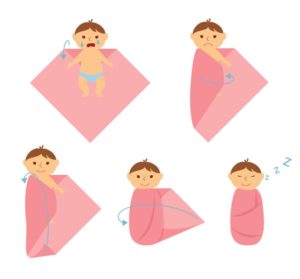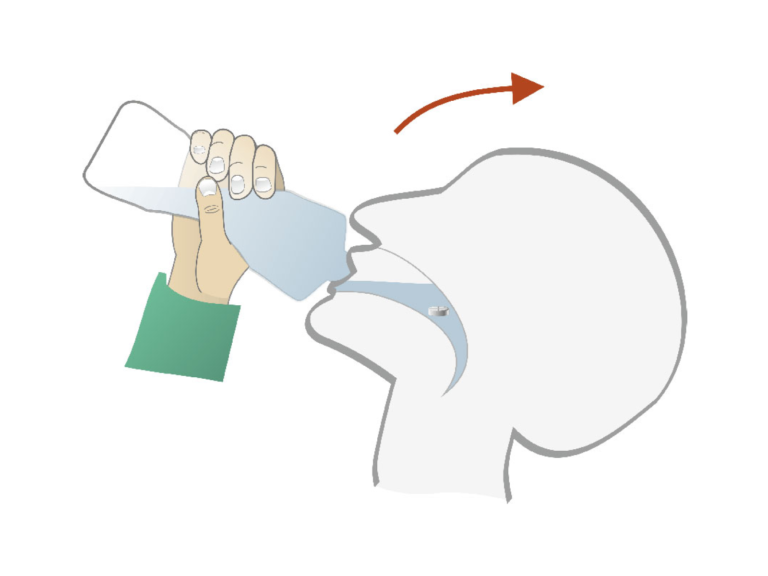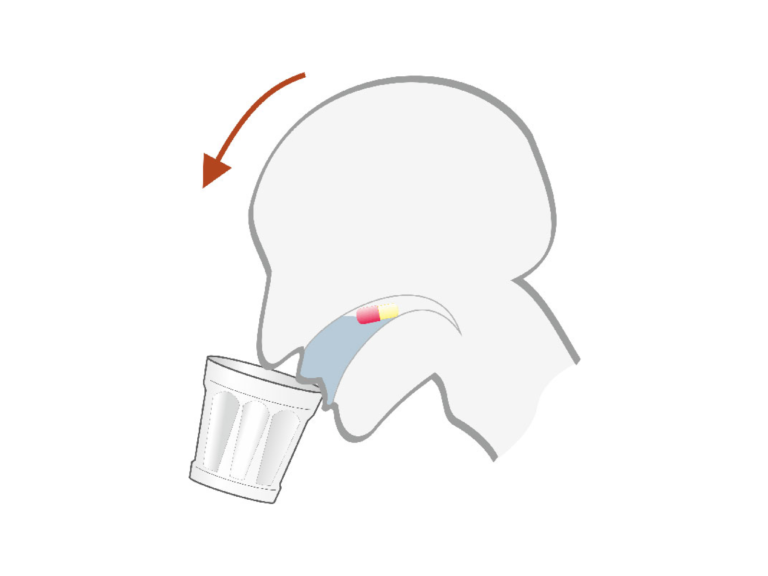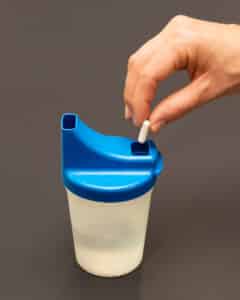Contact us
High contrast
This page has been translated automatically.
Your child must continue to take medication at home. Some important points are summarised for you below.
If you have any problems or questions regarding the administration of medication or in the event of unexpected reactions to the medication (such as diarrhoea), please contact your paediatrician or contact the Medgate Kids Line (billing via health insurance): +41 58 387 78 82.
Unless otherwise described, medicines are stored at room temperature (between +15°C and +25°C).
In principle, the following applies:
Some children find it difficult to take their medication. Together with your child, try to find a way for them to take their medication well. We have put together some helpful tips and tricks for you here:


With the pot-bottle method, the tablet is placed on the tongue. The lips firmly enclose a water bottle. Water is then drunk from the bottle with a quick, sucking movement. The tablet can be swallowed with the water using the suction effect.

In the forward tilt technique, the capsule is placed on the tongue in an upright position and a sip of water is taken into the mouth without swallowing it. The head is then tilted forwards until the chin lightly touches the chest. This automatically moves the capsule into the throat and makes it easier to swallow.
How long do I have to give my child the medication?
In order to achieve the full effect of the medication, you must administer it for as long as prescribed by the doctor. For this reason, it may be necessary to continue taking the medicine even if your child is already feeling better and no longer appears ill.
What should I do if my child vomits or other problems occur?
If you have any problems or questions regarding the administration of medication or in the event of unexpected reactions to the medication (such as diarrhoea), please contact your paediatrician or call the Medgate Kids Line on 058 387 78 82 (billing via health insurance)
This is how you proceed:

058 387 78 82 (Costs are settled via the health insurance company)
In the event of an emergency abroad, call the emergency number of your health insurance company. You will find the contact details on your health insurance card.
145 (Poison and Information Centre)
University Children's Hospital of both
Basel, Spitalstrasse 33
4056 Basel | CH
Phone +41 61 704 12 12
© UKBB, 2025
The Medgate Kids Line provides quick and uncomplicated medical advice if your child is unwell. The medical team of our partner Medgate is available to you by telephone around the clock.
For emergencies abroad: Call the emergency number of your health insurance company. You will find this number on your health insurance card.
More information: On the Page of the emergency ward you will find everything you need to know about behaviour in emergencies, typical childhood illnesses and waiting times.
144 Outpatient clinic
145 Tox Info Suisse (Poisonings)
117 Police
118 Fire brigade
Which topic would you like to contact us about?
For praise or criticism, please use the Feedback form.